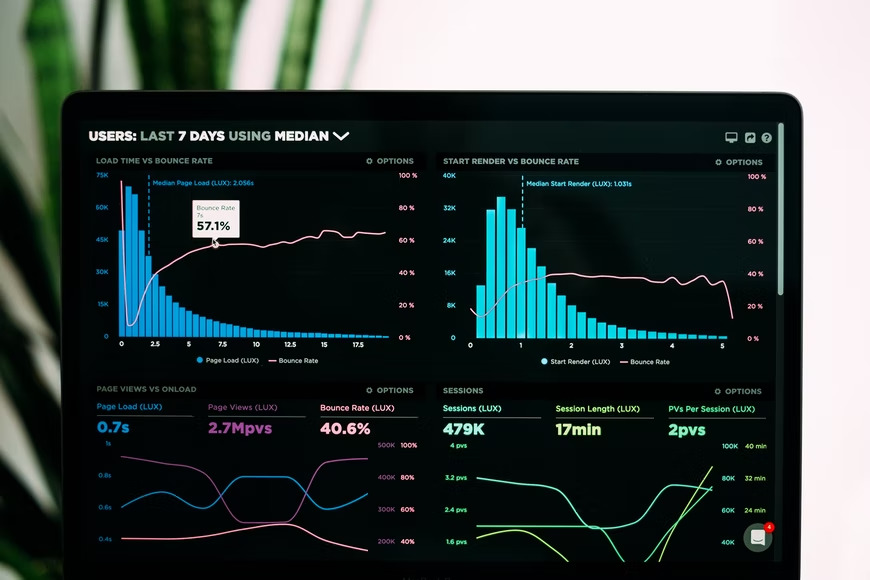Data classification and analytics are growing in importance with businesses of all sizes. Raw and unstructured data alone is not enough to drive business value. It needs to be organized and categorized so that you can find what you’re looking for when you need it.
The requirement to organize unstructured data is cited as a concern for 95% of businesses.
Data classification and analytics will assist you in developing a knowledge of your firm’s data resources. You can then categorize the assets to preserve data and conform with security policy, guidelines, compliance duties, and laws. Companies can achieve this by either paying employees to manually add labels based on specified criteria or by automating the entire process.
Assume you have finite resources to invest in data security; understanding exactly what data needs to be protected will allow you to prioritize and develop a solid approach. Then, utilize your funds and other assets appropriately, minimizing security and compliance expenses.
One of the primary advantages is that it helps your company to plan for the unexpected. Business analytics can forecast future patterns in an organization’s sales, earnings, and other vital variables by modeling them. This enables organizations to anticipate and prepare for changes that may occur yearly, periodically, or on any level.
Maybe you’ll need to cut down on expenditure to prepare for a quiet season, or you could need to spend money on new marketing initiatives. BA can help larger organizations forecast order volume and avoid waste.
Your company may also use business analytics to try out new advertising strategies. In this article, we will talk about six ways data classification and analytics influence every aspect of your business.
6 Ways Data Classification and Analytics Influence Every Aspect of Your Business
Here are six ways in which data analytics and data classification influence your business and everyone associated with it.
- Manage data growth
- Prevent business frauds
- Make better business decisions
- Drive data governance
- Detect business disruptions early
- Add value to your data portfolio
Read on to learn about it in detail.
1. Manage data growth
As your business grows, so does the amount of data you generate. Without a system for classification, this data can quickly become unmanageable. Data classification helps you to organize and manage your data more effectively, so you can make better use of it.
Data classification involves assigning labels to data so that it can be sorted and stored more efficiently. For example, you might label customer data by region, so that you can easily pull up all customers from a particular area. This can be a valuable tool for marketing and sales, as well as for customer service.
Classifying data can also help you to comply with data privacy regulations, such as the General Data Protection Regulation (GDPR). By labeling data according to its sensitivity, you can ensure that only authorized personnel have access to the information they need. This can help to prevent data breaches and protect the privacy of your customers.
In short, data classification is a valuable tool for any business that generates a lot of data. By labeling and sorting data, you can make it more manageable and use it more effectively.
2. Prevent business frauds

Data analytics can help prevent business fraud by identifying patterns in data that may indicate fraudulent activity. By analyzing data from multiple sources, businesses can develop a better understanding of what constitutes fraudulent activity and can take steps to prevent it.
For example, fraud data analytics can be used to track changes in financial data that may be indicative of fraud. Such data can be used to create models that can predict the likelihood of fraud.
You Might Also Like
These models can be used to help businesses make decisions about which areas are most at risk for fraud and how to best prevent it.
Data analytics can also help businesses detect fraud that has already occurred and take steps to recover losses.
3. Make better business decisions
Data analytics is critical for businesses in today’s data-driven economy, especially small businesses. By analyzing data, businesses can gain insights into customer behavior, trends, and patterns. This information can then be used to make better business decisions, such as deciding which products to sell, how to price them, and where to market them.
Data analytics can also help businesses improve their operations. For example, by analyzing data on production, businesses can identify inefficiencies and areas for improvement. This information can then be used to make changes that can improve productivity and efficiency.
Overall, data analytics enables businesses to make better decisions, improve their operations, and compete effectively in today’s economy.
4. Drive data governance
Data classification drives data governance by providing a framework for understanding, managing, and protecting data. By classifying data, you can establish controls and policies to ensure that data is used appropriately and remains confidential. Data classification also supports compliance with regulatory requirements and helps organizations manage risk.
Without data classification, data governance would be more difficult, if not impossible. Data classification provides the means to understand what data is important to the organization, how it should be protected, and how it can be used. It also provides a way to track and manage changes to data over time.
5. Detect business disruptions early

Organized data helps you detect business disruption early. When you have a system in place for tracking and storing data, you can quickly identify when something goes wrong. This allows you to take corrective action quickly before the disruption causes too much damage.
Additionally, organized data can help you trend data over time, so you can see patterns and potential problems emerging. This allows you to take proactive steps to prevent disruptions, rather than reactively trying to fix them after they’ve already occurred.
6. Add value to your data portfolio
Organized data makes your data portfolio more valuable because it is easier to find and use. When your data is organized, you can quickly find the information you need and put it to use. This makes your data more valuable because you can get more work done in less time.
In addition, when your data is organized, it is easier to share with others. This makes your data more valuable because you can collaborate with others more easily.
Wrapping Up
That’s all for this article. Hopefully, now that you have read it, you understand how data classification and analytics influence every aspect of your business. Remember, raw and unstructured data is of no use until it has some meaning and can add value to your business operations.
So, if you haven’t yet adopted business analytics for your company, now is the time to do so.




Archana K says:
There is absolutely no doubt in my mind about the criticality of analytics and keeping a tab on them to adjust our business to yield optimum results.